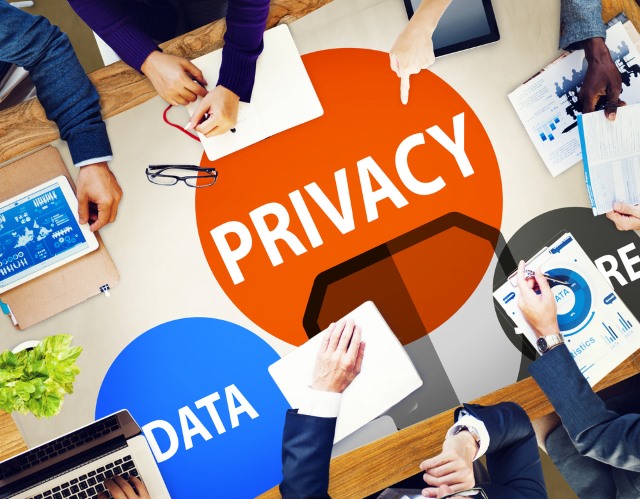
Disney faces lawsuit for allegedly spying on kids through mobile apps and games
Disney -- who just announced plans to launch its own streaming service and drop Netflix -- is collecting personal information about children and non-consensually sharing it with advertisers, alleges a lawsuit against the company.
The lawsuit, says that Disney and three other companies it worked with (Upsight, Unity, and Kochava) created apps that spy on users -- primarily children -- gathering information which is then shared with advertisers. If this is found to be the case, it is in violation of the Children's Online Privacy Protection Act, and Disney could be hit with hefty fines.

Google fires employee who criticized its diversity policies
The senior software engineer who penned the now-infamous anti-diversity manifesto has been fired by Google. James Damore confirmed that he was fired for "perpetuating gender stereotypes," but says that he is "currently exploring all possible legal remedies."
Damore says that he has now been in touch with the US National Labor Relations Board (NLRB), pointing out that it is "illegal to retaliate against an NLRB charge." The "Google's Ideological Echo Chamber" memo written by the now-former employee went viral internally at Google before leaking to the internet shortly afterwards.

Privacy: UK government to force social media and tech companies to give users more control over their data
The UK government is set to introduce a new Data Protection Bill which will give people the right to demand companies delete personal data. The bill, due to be introduced this summer, will make it easier for people to find out what information is held about them and how it is being used.
Matt Hancock, the Digital Minister, says that the bill amounts to a widescale "right to be forgotten" and it will give people the opportunity to separate themselves from online posts they made when younger. It will also take steps to increase privacy by making it harder for companies to gain permission for limitless access to personal data.

TVAddons is back, but the Kodi addon site faces secretive lawsuit from Canadian telecos
It has been hard to avoid stories about Kodi in recent months as broadcasters and copyright holders panic about the software's potential for piracy. The controversial site TVAddons was the subject of a lawsuit from Dish Network, and shortly after this it disappeared from the web completely.
Rather than originating from the US as many people suspected, the lawsuit against TVAddons that led to its disappearance comes from Canadian telecoms firms Bell Canada, TVA, Videotron and Rogers. Now TVAddons is back, but the story about its legal battle -- involving claims of piracy of Game of Thrones -- is rather more complicated than just about anyone could have thought.
Europe says Facebook, Twitter and Google need to improve user terms or face fines
Facebook, Twitter and Google have failed to impress EU authorities with their proposed revisions to user terms. The three companies have been under pressure to amend their terms to bring them in line with European law.
The European Commission and consumer protection authorities wrote to the tech giants last month, giving them until July 20th to submit proposals about their respective social networks. The companies have until September to implement changes that satisfy Europe, or fines could be handed out.

Artificial Intelligence and the legal profession -- is there a safe intersection?
If you look at the news, it looks like the entire world will be run by artificial intelligence (AI) in just a decade or two. One of the latest conversations has to do with the role of AI in the legal world. Is there a future here?
The legal industry is still based on the same principles that it was decades ago, but it’s undergone some pretty significant changes over the past few years. One area, in particular, that’s worth exploring is AI. In a world that’s increasingly characterized by automation, this industry is trying to figure out what it looks like to automate without sacrificing the quality and attention to detail that’s required in sensitive legal matters.

Plans for age checks on porn sites highlight the UK government's failure to understand the web
If there's anything that the UK government has demonstrated in recent years it is that it not only wants to try to take control of the web, but it also fails to understand the web. These two facts make for a terrible combination -- something highlighted by the snooper's charter and the government's desire to break encryption on demand.
The latest idea -- ushered in under the guise of protecting children in a bid to win points -- is the introduction of age restriction on porn sites. The Digital Economy Act will require porn sites to use credit card verification to check that users are aged 18 or over. There are numerous holes here, illustrating that the government simply doesn’t know what it's talking about.

Nearly half of football fans watch illegal streams of matches -- a third do so regularly
A survey by the BBC reveals that over a third of Premier League football (or soccer, if you insist) fans are getting their gaming fix using unofficial (that is, illegal) online streams.
Kodi boxes and similar dedicated devices are used by more than a quarter of fans for this very purpose. Perhaps unsurprisingly, it is younger adults who are more likely to make use of illegal streams.

Europe guts Google, and that's just wrong
Today the European Union gave Apple a great gift to celebrate iPhone's 10th anniversary (on June 29th): The ridiculous, record $2.7 billion fine, and associated sanctions, against Google that once again demonstrates the EU's small-minded oversight that wrongly regulates evolving technologies in a big world. The adverse antitrust ruling finds that the online titan favored its own online shopping services (and paying customers) over rivals.
In February 2010, with the EU Competition Commission's preliminary investigation starting, I rightly called "Google a dangerous monopoly". Seven years later, the competitive landscape has dramatically changed, and rapidly evolves. The Commission's action is too much, too late, and in the short-term can only benefit rivals like Apple that will dominate online activities and commerce as what we knew as traditional web search becomes something else.

The end could be nigh for the Pirate Bay after European Court of Justice ruling
The Pirate Bay may be something of a battered ship after an onslaught of attacks over the years but, somehow, it remains afloat. The latest blow, however, comes from the European Court of Justice which has just ruled that the site -- despite not hosting any content itself -- can still be held liable for copyright infringement.
The landmark ruling means that the site could be considered to have broken the law for simply directing people towards copyrighted material. There are implications for a wide range of sites and services, but the focus is very much on that stalwart of the torrenting world, The Pirate Bay.

Microsoft wins Supreme Court case about scratched Xbox 360 discs
With staggeringly coincidental timing, just as Microsoft revealed its upcoming Xbox One X console, the company received some great news from the US Supreme Court. In an 8-0 decision, the court overturned an earlier ruling in what has become a complex and lengthy case.
What originally started off as a fairly simple case around a decade ago about game discs scratched by Xbox 360 consoles, has evolved into quite a different beast. The latest ruling means that a case that was to be brought collectively by tens of thousands of gamers cannot be granted class action status.

EU proposals could grant police direct access to US firms' cloud data
The European Union is seeking ways to make it easier for law enforcement agencies to gather evidence from US tech firms. The European Commission has three proposals that could form the basis of future legislation, and one of them involves granting direct access to individuals' data stored in the cloud.
While the proposals are unlikely to prove popular with the public -- particularly when the UK is already subject to the invasive Investigatory Powers Act -- they are being pushed as a tool in the fight against terrorism.

Police ask people not to share London Bridge and Borough Market attack footage on social media
Last night saw two attacks in London leading to the deaths of seven people and dozens of injuries. A van driven at pedestrians on London Bridge, and stabbings in Borough Market have been labelled as terrorist attacks, and Facebook Safety Check was activated for the incident.
The social network was not just used by people to let loved ones know that they were safe following the attacks, but also to share footage of the shocking aftermath. While police are keen for witnesses to come forward with footage they may have shot on mobile phones, they are pleading with people not to share videos on social media.

UK businesses less prepared for GDPR than European counterparts
The new GDPR legislation is now just a year away from coming in to force, but new research claims that British businesses are not nearly as prepared as expected.
A study by Blancco Technology Group reveals that the UK is significantly less prepared than its European counterparts, with companies lagging behind the rest of the continent.

More businesses are becoming familiar with GDPR, but fines are still likely
Even though the GDPR is just a year from coming into force, the majority of businesses are still unprepared. This is according to new research from Compuware, which says businesses are risking huge non-compliance fines.
Some businesses, truth be told, have made progress since last year.
